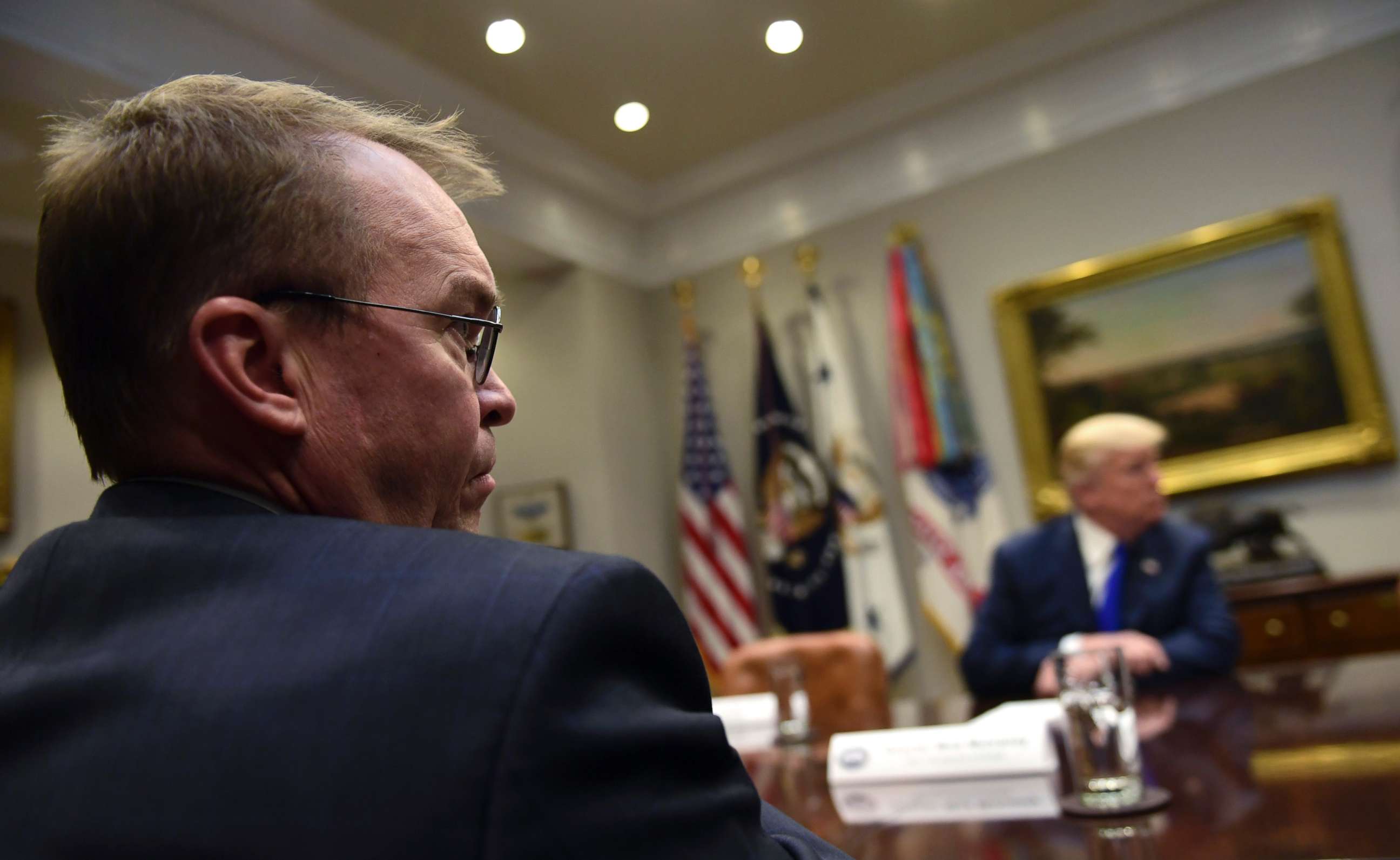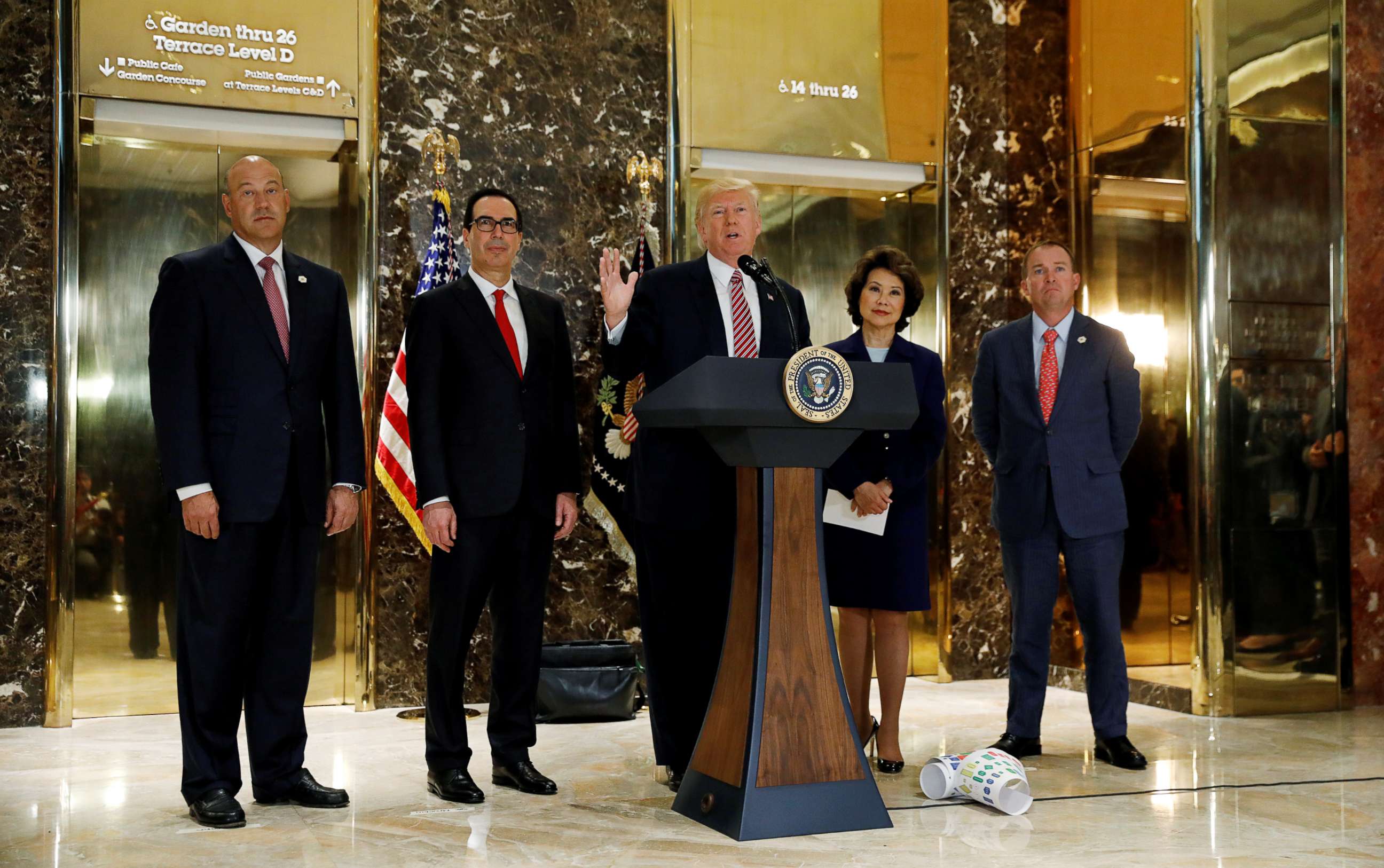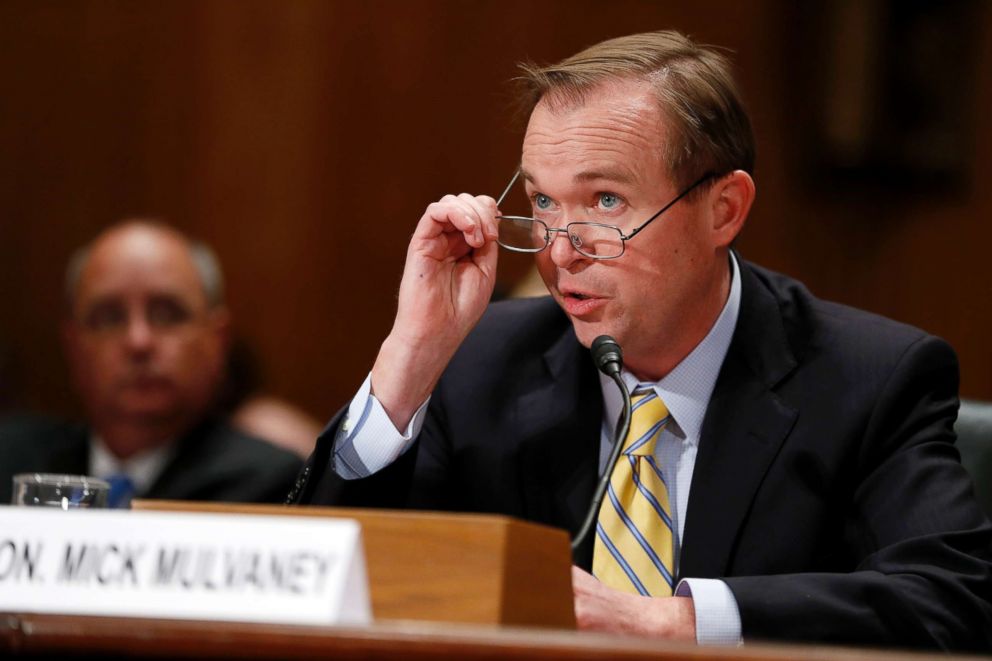Trump administration bid to unravel bipartisan spending deal faces uphill climb
Trump administration bid to unravel bipartisan spending deal faces uphill climb.
After many fiscal conservatives complained that a $1.3 trillion spending bill signed into law last month included too many concessions to Democrats and bloated domestic spending, the Trump administration is now working with Republican leaders in Congress to review non-defense expenditures, hoping to compose a package of cuts in the next month, according to a White House official and Republican sources.
By pursuing spending cuts through the Congressional Budget and Impound Control Act, the administration could propose a revocation of certain funds -- and approval would only require simple majorities in each chamber of Congress.
Senate Majority Leader Mitch McConnell admits the deal is “a bipartisan agreement” but added “it's no secret that the omnibus bill was larger than most Republicans would like.”
“The Democrats had their demands and it was a bipartisan agreement,” McConnell, R-Ky., said. “Having said that, I'm willing to discuss with the administration the possibility of some kind of rescissions package. I think it's worth a discussion. Whether that's achievable is another matter, but certainly worth discussing.”
Democrats are likely to fiercely oppose any GOP attempt to roll back hikes to non-defense spending.
“We made a deal,” Senate Minority Leader Chuck Schumer, D-N.Y., said. “We've made an agreement. I hope they won't go back on it.”
Those increases -- paired with an increase to defense spending caps -- were “the only reason it passed,” according to House Minority Whip Steny Hoyer, as 111 Democrats joined 145 Republicans to amass enough support to pass the $1.3 trillion omnibus on March 22.
“Sounds to me very much like they’re reneging and trying to cover their tracks,” Hoyer, D-Md., told reporters at the Capitol on Tuesday. “The president signed the bill. It is the law. It was a hard law to get to -- tough bargaining on both sides -- and we made a deal and the deal included spending levels on defense and non-defense, and that the majority on both sides voted for.
“I’m not interested in talking to them,” he added. “I think that deal is done.”

That bipartisan agreement late last month raised non-defense spending levels by $63 billion in 2018, and $68 billion next year -- a rough indication of how much spending Republicans may seek to cut.
"The president has made clear that he is not happy with the amount of non-defense spending in the omnibus bill and will work with like-minded partners on Capitol Hill to see how we can reduce wasteful Washington spending within the law,” Office of Management and Budget Director Mick Mulvaney wrote in a statement provided to ABC News.
Another Trump administration official said possible points of rescission “will be discussed over the coming weeks and finalized closer to May 1.”
“The administration is working to identify potential rescissions and at this point, there is no completed list or dollar amount,” OMB press secretary Meghan Burris said. “The package we send to Congress will reflect the president’s fiscally conservative principles.”

Without Democratic cooperation, the maneuver faces a tough climb on Capitol Hill. One senior House Republican aide bluntly predicted the package won’t advance through Congress and will not reach the president’s desk for his signature.
“It will go nowhere,” the aide said.
Although operating under the parameters of the Congressional Budget and Impound Control Act could enable to the Senate to approve the cuts with only 51 votes, the math already does not appear to be in the president’s favor.

Sens. Lisa Murkowski and Susan Collins, two Republican senators whose support would be critical to passing a rescissions package without any Democratic support, have already signaled they are opposed to the idea -- placing the debate on the precipice of failure.
“I’d obviously have to look at what’s in it, but I do not understand reopening a hard negotiation on a budget package that has just been completed,” Collins, R-Maine, told The Washington Post.
“You know, we worked hard. It’s not a perfect package. Nothing is. But as individual appropriators, I know we all worked hard on our accounts and tried to get the priorities that we could,” Murkowski, R-Alaska, also told the Post.


